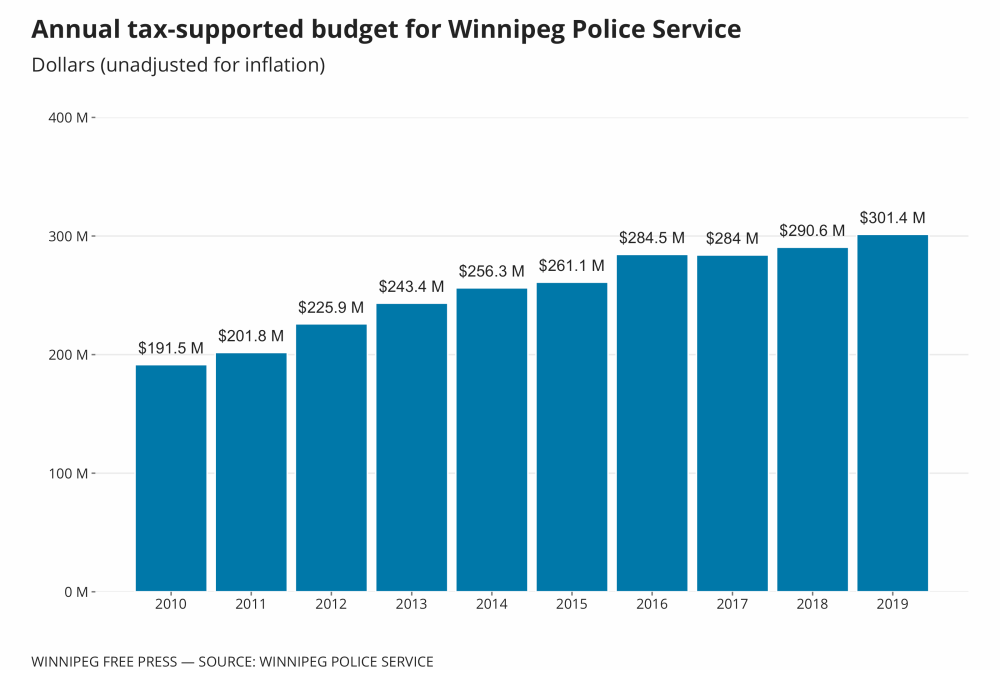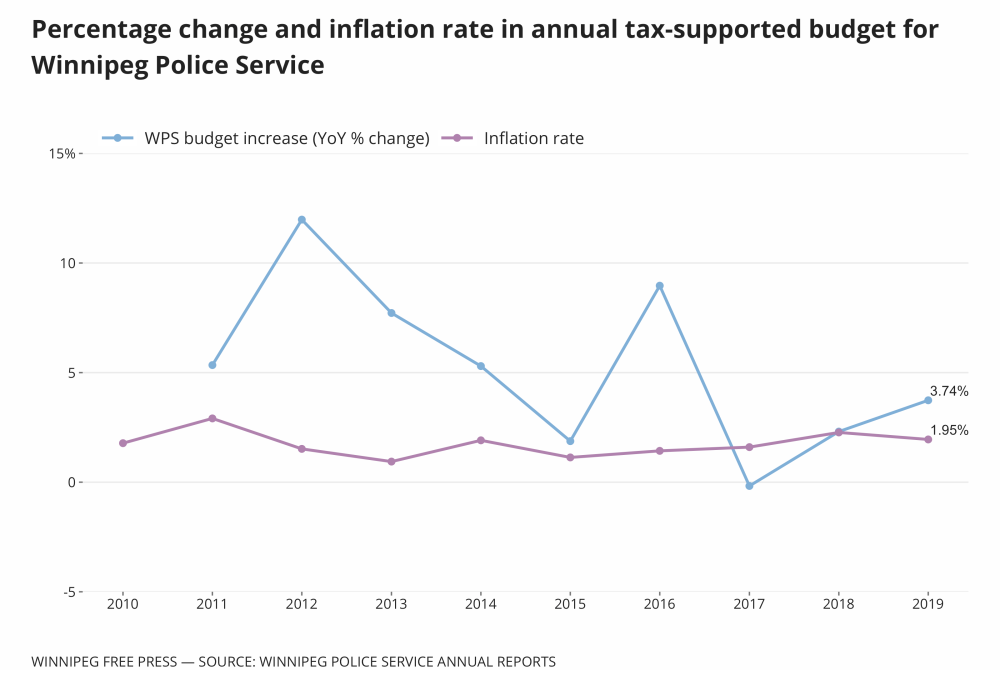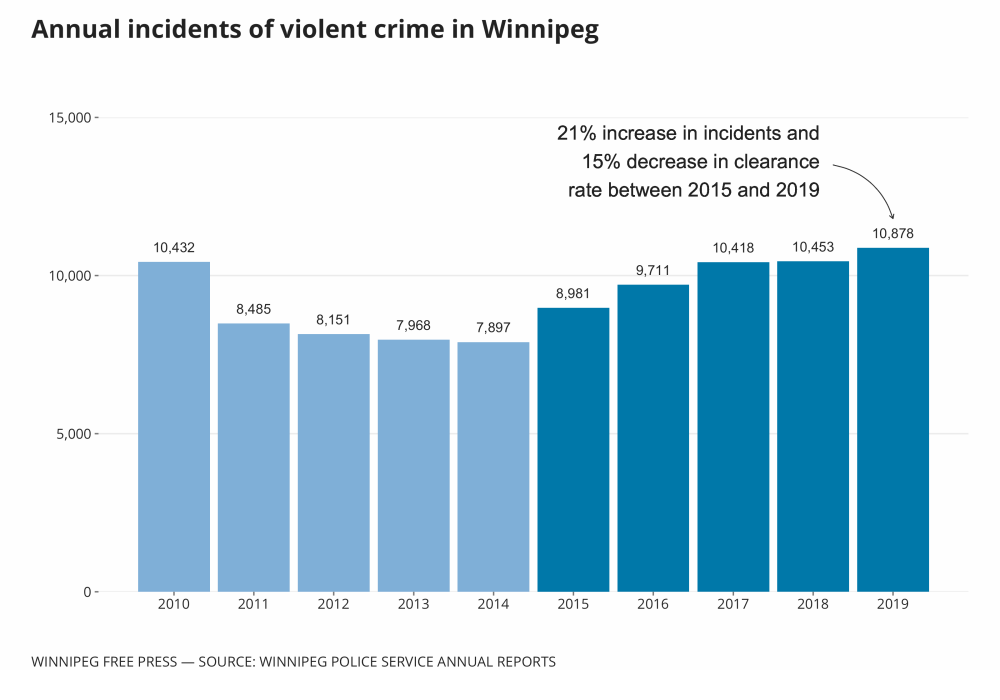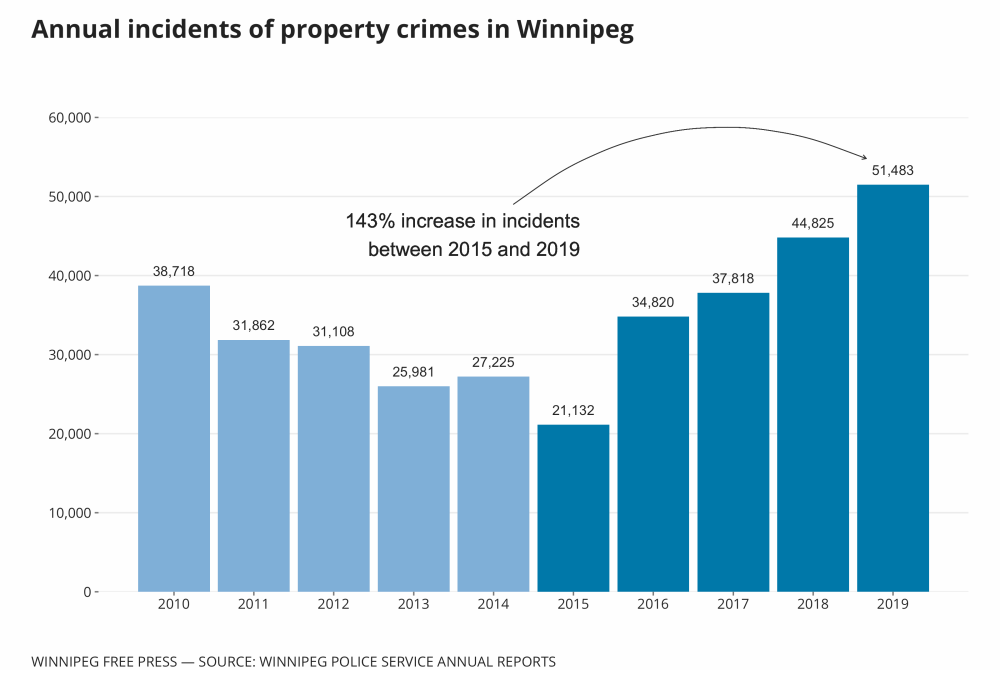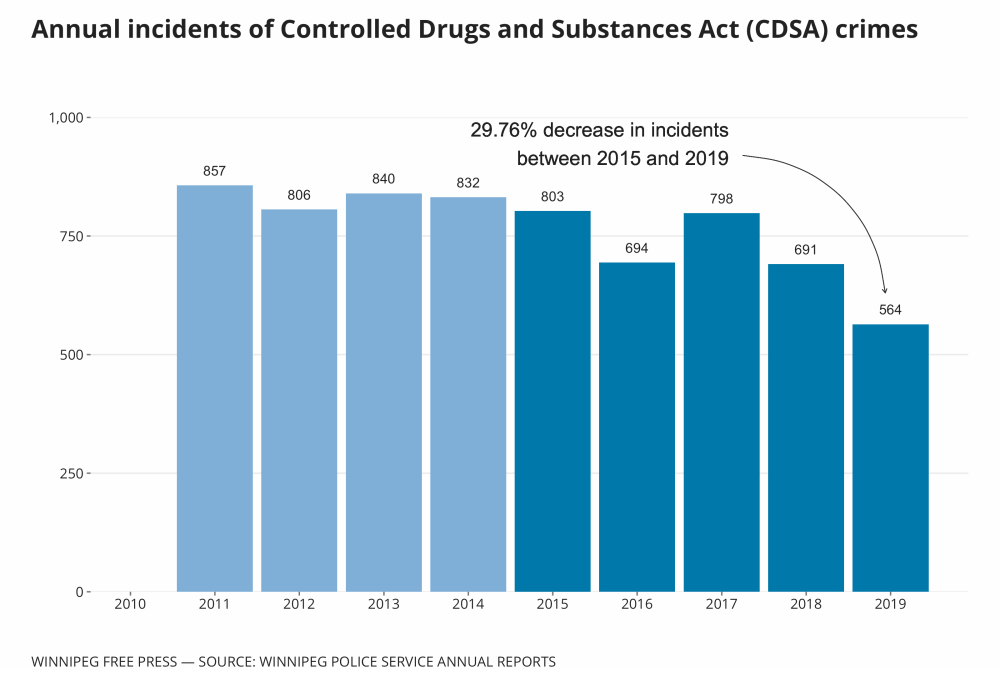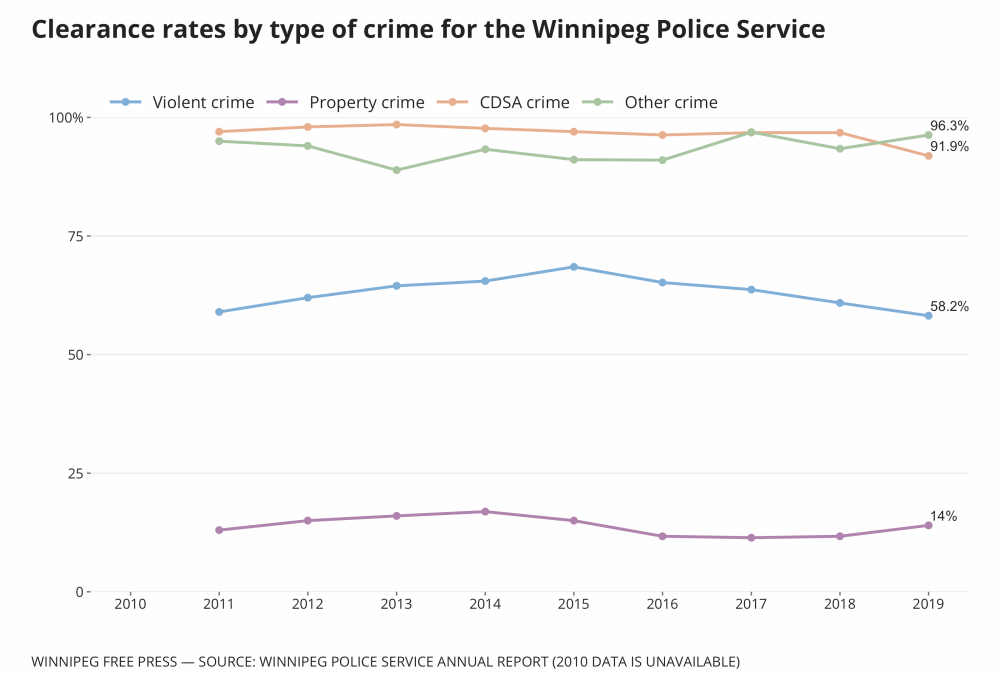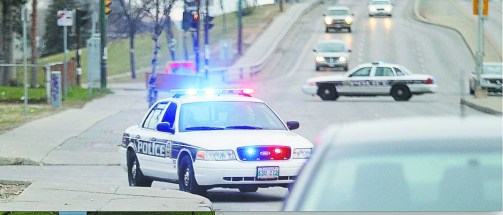Arrested development Deep dive into police stats shows little progress on diversity while budget, crimes increase
Read this article for free:
or
Already have an account? Log in here »
To continue reading, please subscribe:
Monthly Digital Subscription
$0 for the first 4 weeks*
- Enjoy unlimited reading on winnipegfreepress.com
- Read the E-Edition, our digital replica newspaper
- Access News Break, our award-winning app
- Play interactive puzzles
*No charge for 4 weeks then price increases to the regular rate of $19.00 plus GST every four weeks. Offer available to new and qualified returning subscribers only. Cancel any time.
Monthly Digital Subscription
$4.75/week*
- Enjoy unlimited reading on winnipegfreepress.com
- Read the E-Edition, our digital replica newspaper
- Access News Break, our award-winning app
- Play interactive puzzles
*Billed as $19 plus GST every four weeks. Cancel any time.
To continue reading, please subscribe:
Add Free Press access to your Brandon Sun subscription for only an additional
$1 for the first 4 weeks*
*Your next subscription payment will increase by $1.00 and you will be charged $16.99 plus GST for four weeks. After four weeks, your payment will increase to $23.99 plus GST every four weeks.
Read unlimited articles for free today:
or
Already have an account? Log in here »
Hey there, time traveller!
This article was published 06/08/2020 (1951 days ago), so information in it may no longer be current.
Calls to defund — or even abolish — the police have gone from fringe to mainstream in recent months, as a global reckoning has erupted over the role law enforcement should play in communities in the wake of the May 25 killing of George Floyd in Minneapolis.
The world watched transfixed in horror as Floyd, 46, a Black American, was pinned to the ground by a white police officer, Derek Chauvin, 44, who pressed his knee into the back of Floyd’s neck for eight minutes and 46 seconds.
Chauvin was fired by the Minneapolis Police Department and charged with second-degree murder. But Floyd’s death has come to symbolize much more than a single fatal interaction between a citizen and law enforcement official.
It has touched off a wider movement focused on addressing long-standing concerns over racial disparities in law enforcement and has pushed some people to reconsider what policing in the 21st century should look like entirely.
In order to better understand the role crime and policing play in our community, the Free Press conducted a data analysis of 10 years of annual reports issued by the Winnipeg Police Service. The reports are made public each year during a presentation by the chief of police to the Winnipeg Police Board, the civic authority tasked with providing oversight on the force.
Throughout the past decade, funding to the WPS has ballooned. In 2020, it accounts for nearly 30 per cent of the total civic operating budget. The tax-supported police budget has risen well above the pace of inflation: a 57 per cent increase during the past decade, and a 36 per cent increase during the past five years alone.
During the same time period, the City of Winnipeg’s population has increased by 11 per cent. Despite this expanded tax base, per capita costs for policing have spiked by 40 per cent in the past 10 years.
Meanwhile, the number of sworn officers in the city has decreased. In 2018, there were 41 fewer than in 2010. It’s unclear if retirements are outstripping new hires.
When it comes to diversity efforts, the data shows the WPS has not improved at all: Men consistently number in the low- to mid-80 per cent rage, and the proportion of Indigenous and visible-minority officers remained consistent during the decade.
From 2010 to 2014, violent crime decreased in the city. But from 2015 to 2019, it has risen 21 per cent. At the same time, the WPS clearance rate for solving violent crime has been in steady decline since 2015, ending at 58 per cent in 2018.
Property crime is also on the rise; in 2015, there were approximately 21,000 incidents reported. That figure jumped to 51,000 in 2019, marking a 143 per cent increase in five years. Throughout the past decade, the clearance rate for property crime has remained below 17 per cent.
Property crime is roughly five times as frequent as violent crime, and the clearance rate for property crime is approximately one-fifth of the violent crime clearance rate. Clearance rates for both categories are down in the most recent five years — seven per cent for property crime and 15 per cent for violent crime.
Drug crime in Winnipeg has been declining since 2011, except for a 14 per cent bump in 2017. Since 2015, charges under the Controlled Drugs and Substances Act have fallen 30 per cent. Clearance rates for CDSA crimes are consistently above 90 per cent.
The number of “police-initiated events” were erratic year-over-year, while citizen-generated dispatches have consistently risen during the past decade.
michael.pereira@freepress.mb.ca
ryan.thorpe@freepress.mb.ca

Ryan Thorpe likes the pace of daily news, the feeling of a broadsheet in his hands and the stress of never-ending deadlines hanging over his head.
Our newsroom depends on a growing audience of readers to power our journalism. If you are not a paid reader, please consider becoming a subscriber.
Our newsroom depends on its audience of readers to power our journalism. Thank you for your support.

